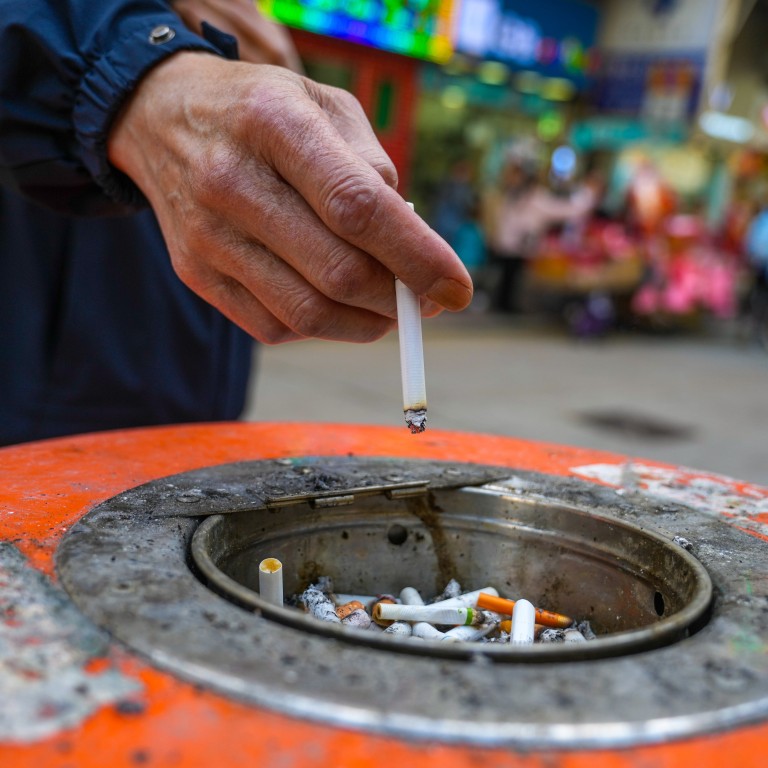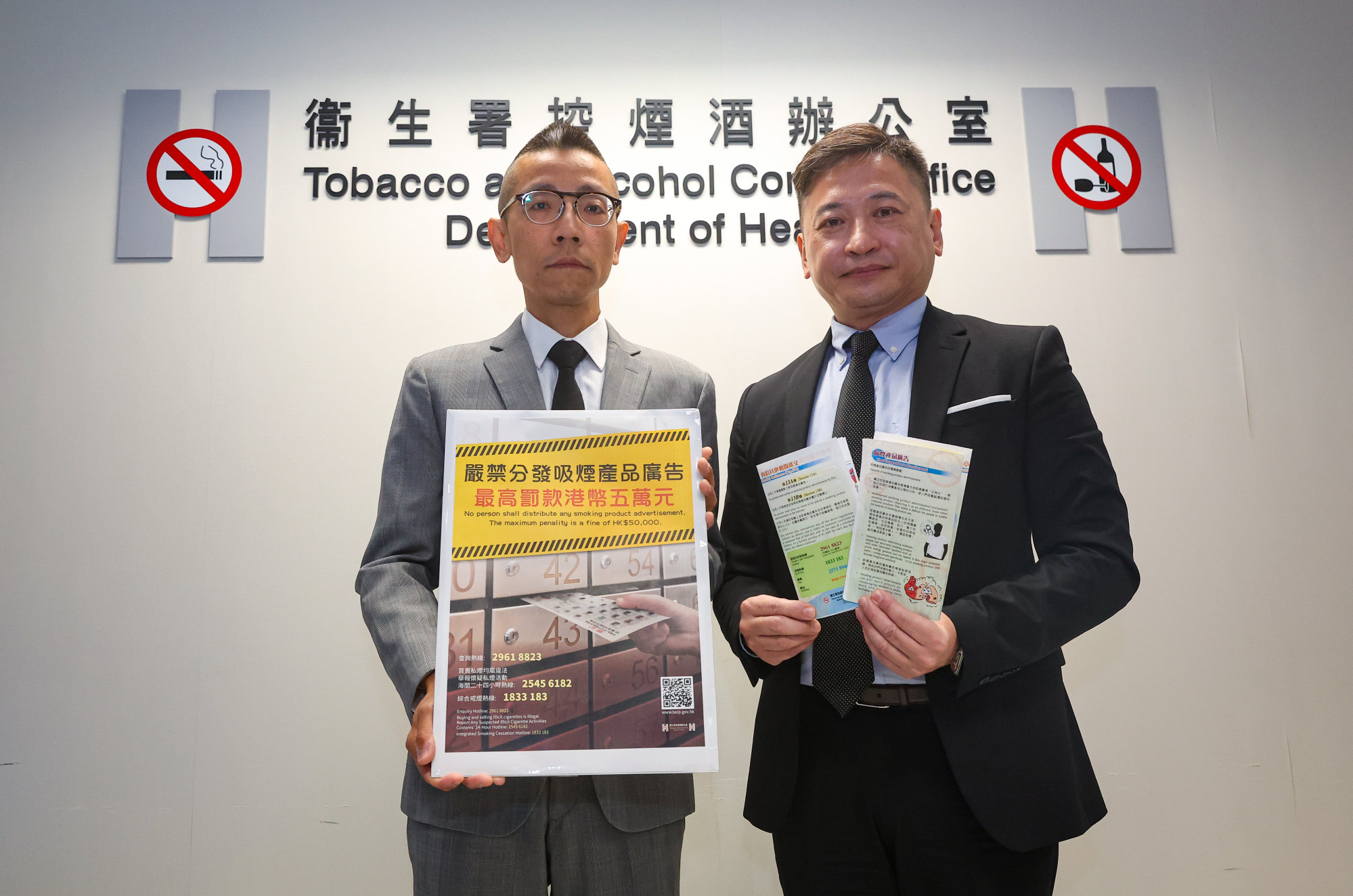
Hong Kong boy, 14, prosecuted over illegal advertising for smoking products as part of clampdown
- Youngster caught distributing ‘huge stack’ of smoking advertising leaflets from his backpack by Tobacco and Alcohol Control Office staff
- Two-part operation involves high-profile patrols in housing estates, as well as undercover work to snare offenders, with other agencies
A 14-year-old Hong Kong boy has become the youngest offender to be prosecuted for illegal tobacco advertising after watchdogs launched a clampdown on illegal activity related to smoking, authorities have revealed.
The boy was caught distributing leaflets advertising smoking products, which is illegal, by staff from the Tobacco and Alcohol Control Office as part of a two-phase operation designed to combat illicit trading, officials said on Monday.
“We were quite shocked too when we found him – he had a huge stack of leaflets in his backpack,” the office’s Principal Inspector Neil Chan Tat-ming said.
The first phase of the operation, which started in January, involved tobacco and alcohol officials working with staff from the Housing Department as well as the Customs and Excise Department to mount high-profile patrols at public housing estates.

They have so far covered 52 public housing estates.
The office, in a second phase with customs officials, carried out 13 stakeout operations, which included the deployment of plain-clothes operatives at housing estates.
Chan added tobacco product advertisements had also been found on the internet.
“We have also set up a special team at the [office] to conduct online inspections and, if we discover such advertisements, we will get in touch with related companies or telecommunications providers to remove them as soon as possible,” he said.
But he admitted there were difficulties because some websites were based overseas and it was “challenging” to get them to comply with removal requests.
Chan also revealed that a major goal this year was to run campaigns to target female and elderly smokers.
Will raising tobacco tax cut Hong Kong’s smoking rate or boost illegal sales?
The office explained that only 3 per cent of women smoked, compared with 17 per cent of men, but the number of female smokers had not declined as much as it had among the male population.
“It is quite interesting, because we have observed the female smoking rate did not go through a sharp downward trend like the men’s,” Yuen Ka-yiu, a senior medical and health officer, said.
He added the bulk of the city’s smokers were in older age groups, with 70 per cent of them aged over 40.
Yuen added authorities would consider pouring more resources into traditional Chinese medicine methods, which have proved popular with women and older people, to help people quit the habit.
Chan said the office had fielded 21,132 smoking complaints last year, most of them related to people lighting up in no-smoking areas, such as inside shopping malls and restaurants, or places such as bus terminals or public transport interchanges.
There were 1,073 complaints about the distribution of tobacco advertising materials.
Hong Kong adds HK$12 a pack to cigarettes but city behind in taxing habit
Twelve people have been prosecuted since 2021 for such offences, including the 14-year-old.
Financial Secretary Paul Chan Mo-po’s budget last month announced an increase in tobacco tax for the second year in a row. Duty went up by another 80 HK cents (0.1 US cents) per stick on February 28.
That meant smokers now pay about HK$3.30 in duty per stick, which pushed the price of a pack of 20 cigarettes to more than HK$90.
“One thing that needs to be clarified is the World Health Organization and many other agencies have said cigarette taxes are not the most important factor in cigarette smuggling,” Yuen said.
“It could be a contributing factor, but its [smuggling’s] prevalence is more to do with the region’s governance, public order and strength of law enforcement.
“So why has there been noise, even before the budget was released, that increasing tax would make the problem more severe?
“It is actually a very typical strategy used by cigarette manufacturers. That is a wrong message.”
